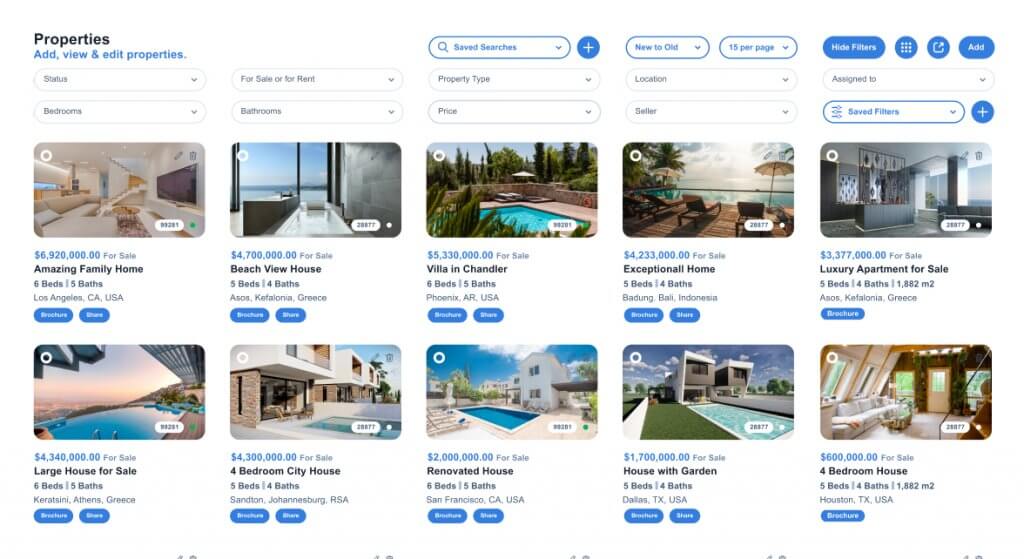AI in real estate marketing has become an essential tool for marketers seeking innovative ways to reach and engage with their target audience effectively. One ground-breaking technology that is transforming the landscape of real estate marketing is Artificial Intelligence (AI). With its ability to analyze vast amounts of data and make intelligent predictions, AI is revolutionizing how personalized and targeted advertising campaigns are created and executed. In this blog post, we will explore the role of AI in real estate marketing, specifically focusing on how it enables personalization, targeted advertising, enhanced customer engagement, and smarter decision-making to drive better results.
Table of Contents
- Delivering tailored experiences with AI
- Reaching the right audience with targeted advertising
- Enhanced customer engagement with chatbots and virtual assistants
- Smarter decision making with predictive analytics
- Conclusion
Delivering tailored experiences with AI
AI-powered algorithms leverage customer data to create highly personalized marketing campaigns. Statistics by McKinsey & Company show that seventy-one percent of consumers expect companies to deliver personalized interactions. And seventy-six percent get frustrated when this doesn’t happen. By analyzing preferences, demographics, and behaviors, AI ensures that customers receive relevant property listings and experiences. For instance, AI can recommend personalized property listings based on a potential buyer’s search history and preferences. This level of personalization creates a more engaging experience, increasing the likelihood of conversion.
Reaching the right audience with targeted advertising
Harnessing AI for targeted advertising campaigns enables real estate marketers to optimize their efforts and reach the most relevant audience. AI algorithms can analyze demographic data, online behavior, and past interactions to create targeted advertising campaigns. For instance, if a real estate developer is promoting a new condominium project targeting young professionals, AI can identify the most relevant online platforms, optimize ad placements, and deliver personalized messages to this specific audience segment. This targeted approach increases the chances of reaching potential buyers who are more likely to convert.
Enhanced customer engagement with chatbots and virtual assistants
AI-driven chatbots can engage with website visitors and provide instant responses to their inquiries. For example, a potential buyer visiting a real estate website can interact with an AI chatbot to inquire about property availability. They can then schedule a virtual tour, or request more information. The chatbot can analyze the user’s questions and provide relevant answers, delivering a personalized experience and fostering customer engagement. Additionally, remarketing campaigns can leverage AI to show personalized ads to users who have previously visited a real estate website or interacted with specific property listings. This increases the chances of re-engagement and conversion.
Smarter decision making with predictive analytics
AI-powered predictive analytics can analyze market trends, property data, and customer behavior to provide real estate professionals with valuable insights. Forbes Advisor reports that 64% of business owners believe AI has the potential to improve customer relationships, indicating a positive outlook on the role of AI in enhancing client interactions. For example, AI algorithms can predict the likelihood of a lead converting into a buyer. This helps agents prioritize their efforts and allocate resources more effectively. By leveraging AI’s predictive capabilities, real estate professionals can make data-driven decisions. In addition, they can optimize their marketing strategies, and stay ahead of the competition.
Conclusion
AI is revolutionizing real estate marketing by enabling personalization and targeted advertising strategies. By harnessing the power of AI, real estate marketers can create highly tailored campaigns. They can deliver personalized content recommendations, optimize advertising spend, and engage with prospects in a more meaningful way. As the industry continues to evolve, embracing AI-driven marketing approaches will be essential for staying competitive and capturing the attention of the modern, tech-savvy audience. Furthermore, by leveraging AI’s capabilities, real estate professionals can unlock new opportunities and achieve greater success in their marketing efforts.




